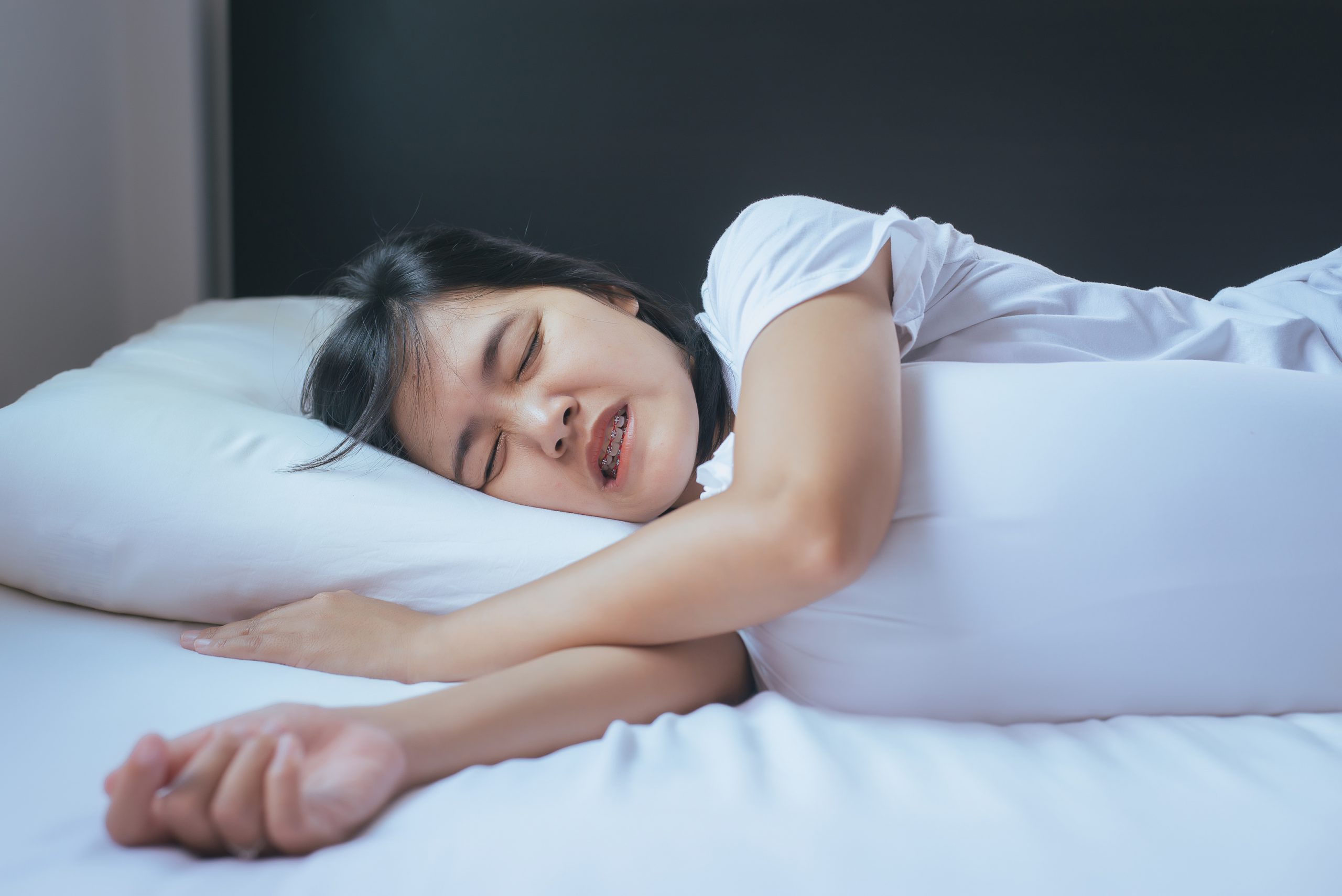
How To Stop Bruxism or Teeth Grinding
Signs of Bruxism
If you only grind your teeth at night, you may not realize you have bruxism. Common signs of this condition include:
- Difficulty Sleeping or Waking Up at Night
- Ear Pain
- Jaw Pain
- Morning Headaches
- Stiff Neck and/or Shoulders
- Temporomandibular Joint Discomfort
Causes of Nighttime Teeth Grinding
The number one reason that people grind their teeth is due to chronic, excessive stress. This stress can be due to work deadlines, family obligations, or other stress factors. Additional causes of bruxism include:
- Having Depression and/or Anxiety
- Having a Sleeping Disorder or Snoring While Sleeping
- Having Certain Lifestyle Traits, Like Tobacco, Alcohol, and Caffeine Usage
Oral Health Effects of Bruxism
While nighttime teeth grinding may not sound like a major health problem, it can cause major problems with your teeth and the health of your mouth if it isn’t treated. This is because chronic teeth grinding can wear down the chewing surfaces and cause chipping and cracking of the teeth, which may cause pain and lead to cavities.
Diagnosing Teeth Grinding with our Melbourne, FL Dentist
If your teeth aren’t obviously worn, accurately diagnosing bruxism may take several appointments and digital x-rays. Digital images help our dentist easily compare your teeth over time to see if they are being worn away. Of course, if your teeth grinding has already been going on for quite some time, you may already be displaying tooth wear on the chewing surfaces.
In individuals without bruxism, the canines of the upper teeth are usually about as long as the front two teeth, and the canines of the bottom teeth are longer than the four teeth at the front of the mouth. When all of these teeth are the same length, the top and bottom chewing surfaces fit together like a puzzle. That’s because teeth grinding is almost always the cause, especially if this type of wear and tear is accompanied by headaches and jaw pain.
Stopping Nighttime Teeth Grinding with Help from Our Dentist at Artistic Touch Dentistry
Our dentist at Artistic Touch Dentistry in Melbourne, FL can diagnose your nighttime teeth grinding and recommend a solution to prevent more damage and repair any teeth that are excessively worn. Stopping bruxism usually involves preventing the upper and lower teeth from coming into contact with each other. For that reason, orthodontic appliances or custom mouthguards that are worn at night are often recommended. These can stop the tooth damage while you work on reducing your daily stress levels. You might also need to change certain habits that may be contributing to your nighttime teeth grinding, like reducing your caffeine intake several hours before you go to bed and exercising to help dissipate a hectic work and/or home life.
If your teeth are severely worn from nighttime teeth grinding, dental bonding, which is used to correct chips and cracks in the teeth, can help restore the length of your teeth and the chewing surfaces, which will make your teeth more effective and give you a younger smile.
To get professional help for your bruxism and to schedule your next dental appointment, contact us online or call us today at 321-724-1400.

